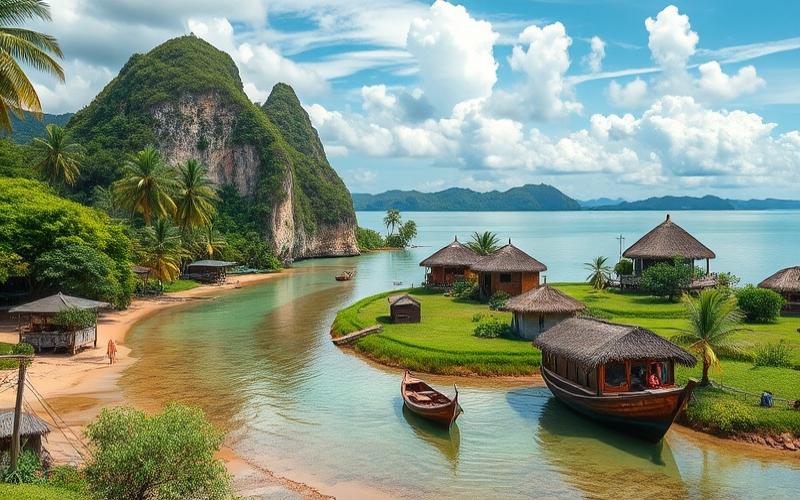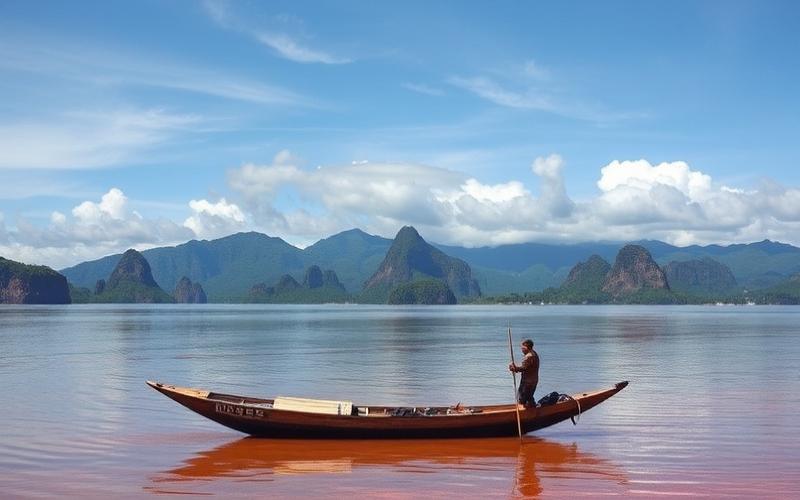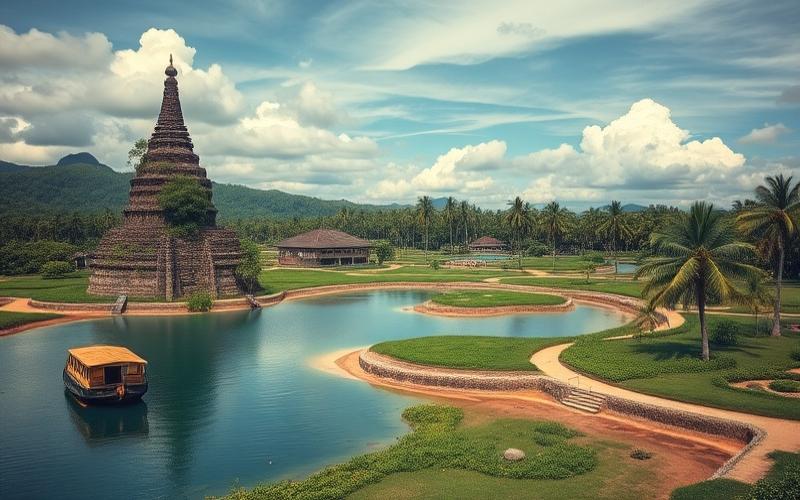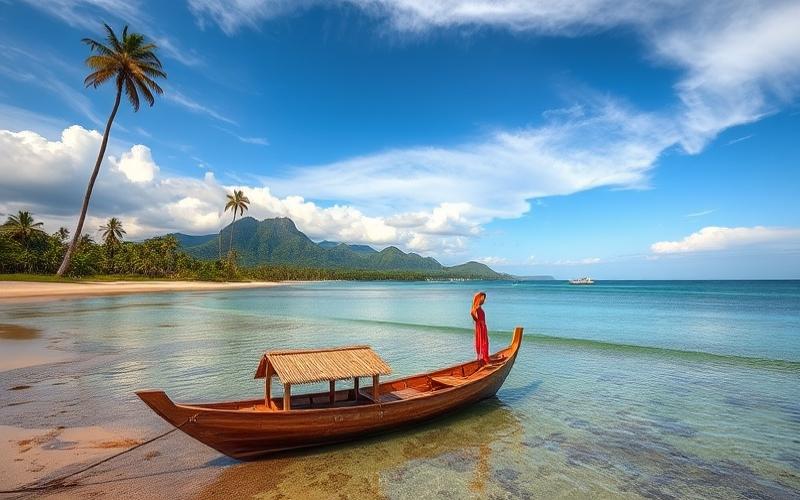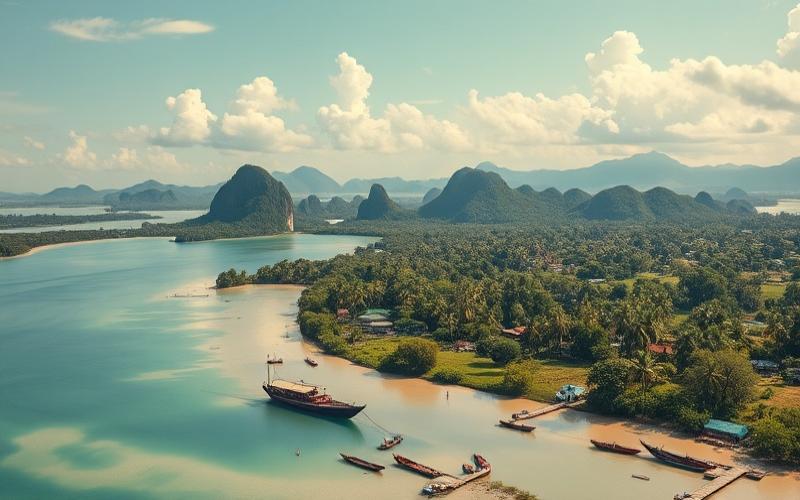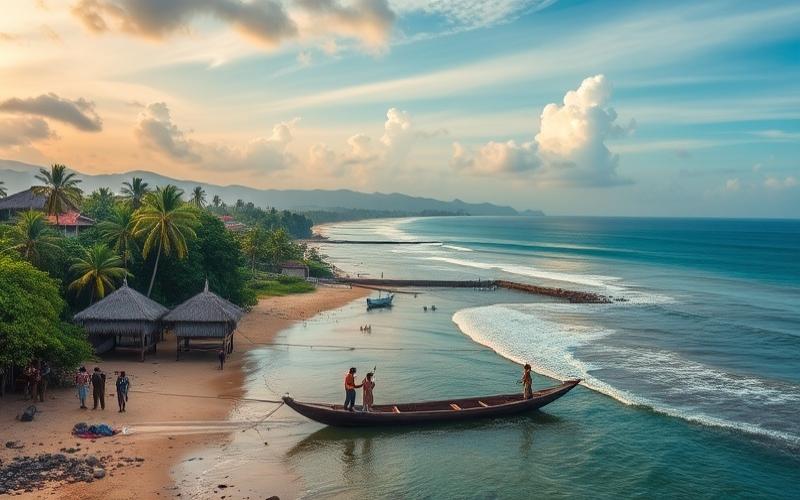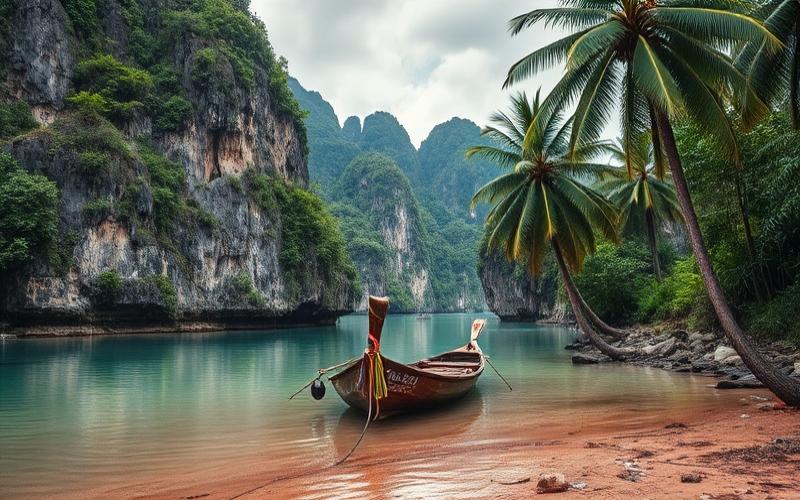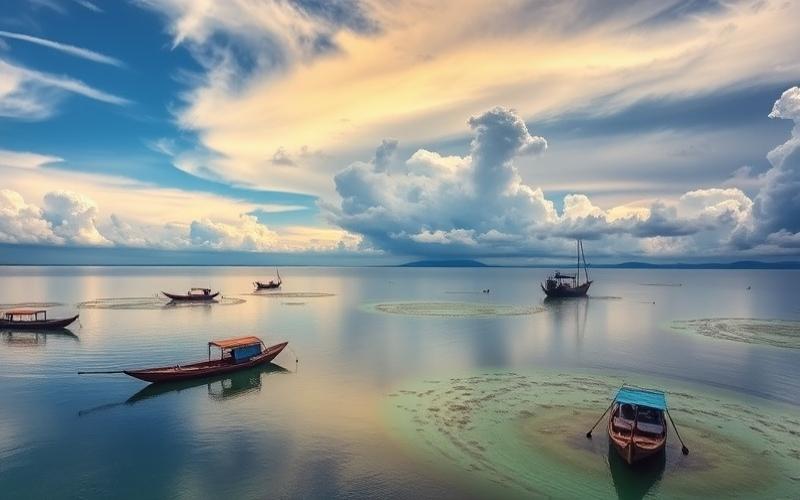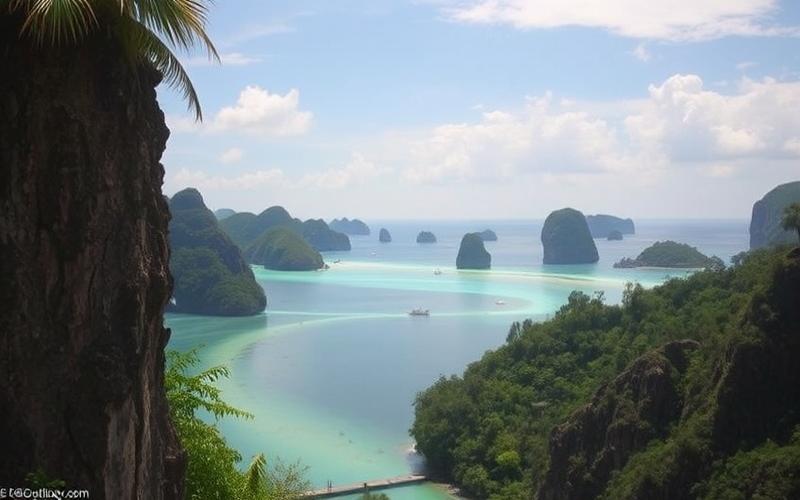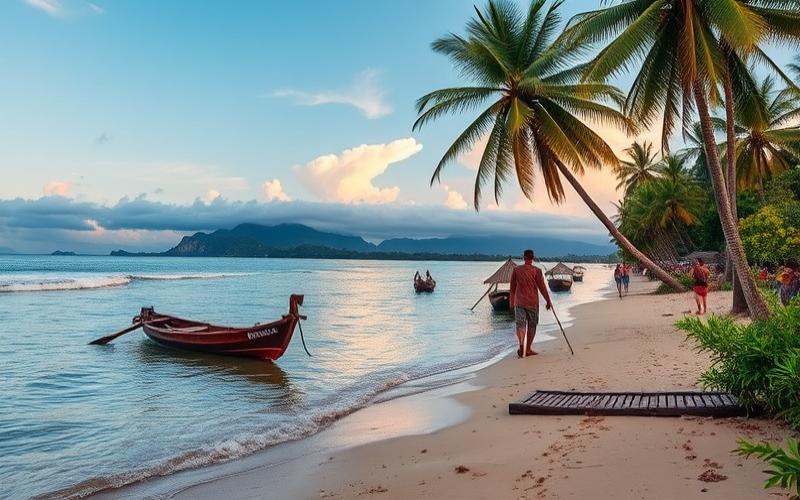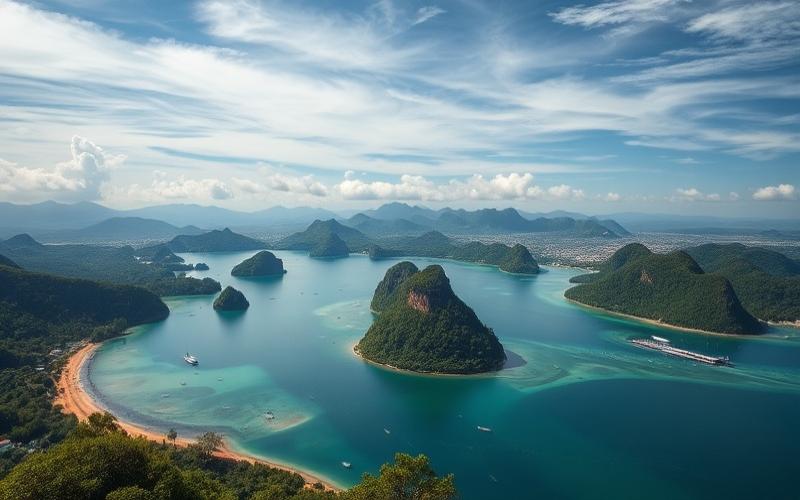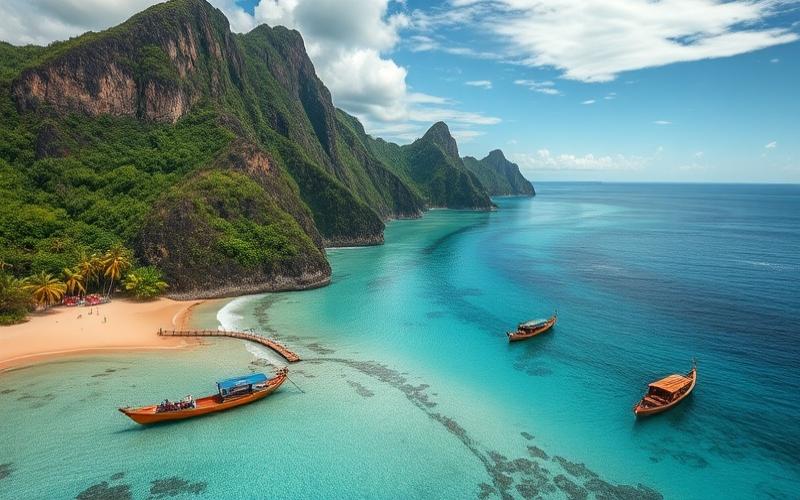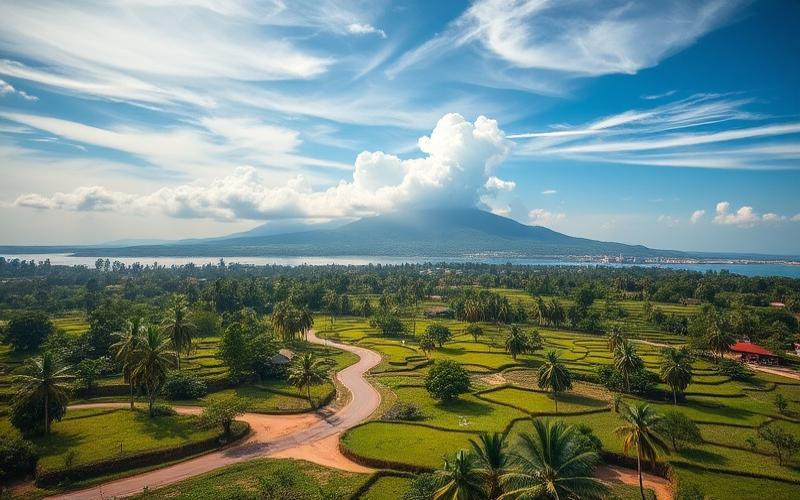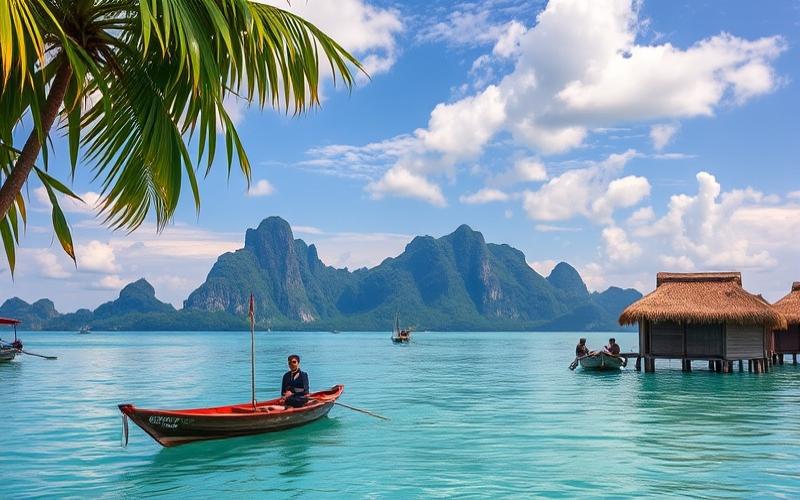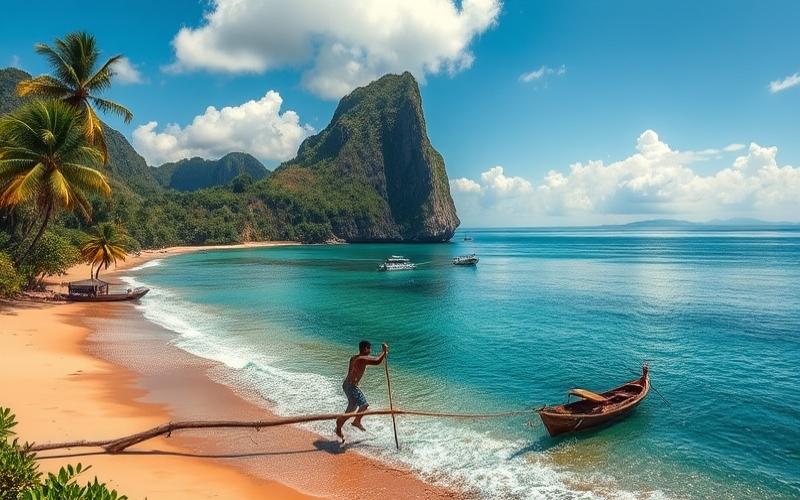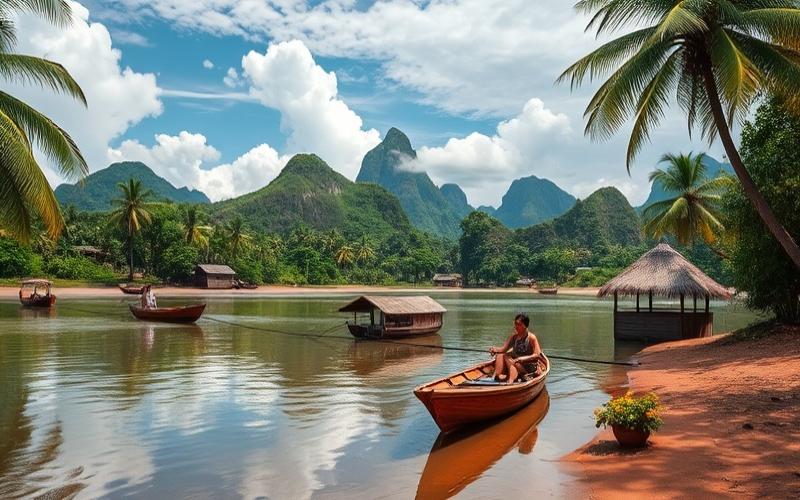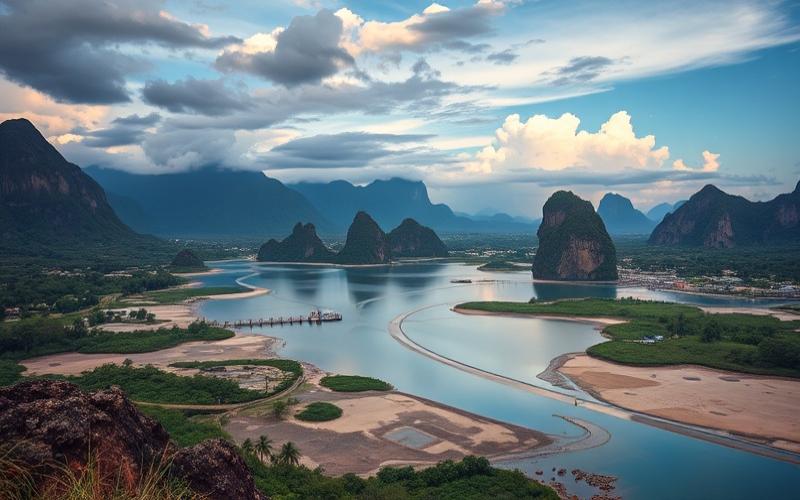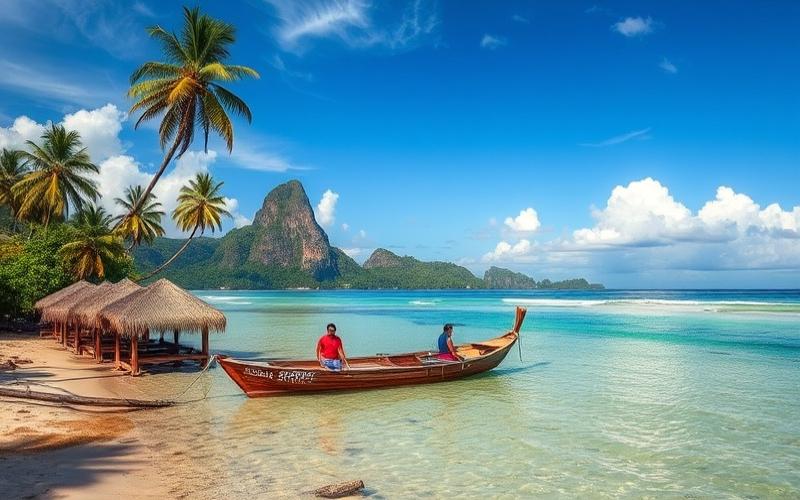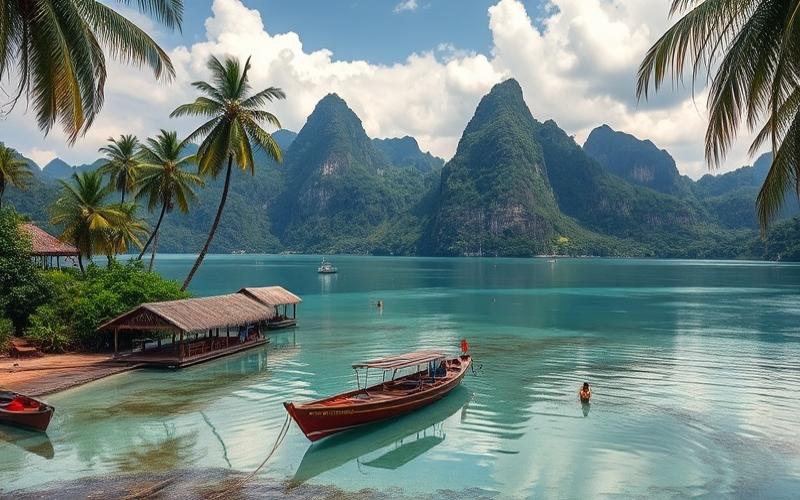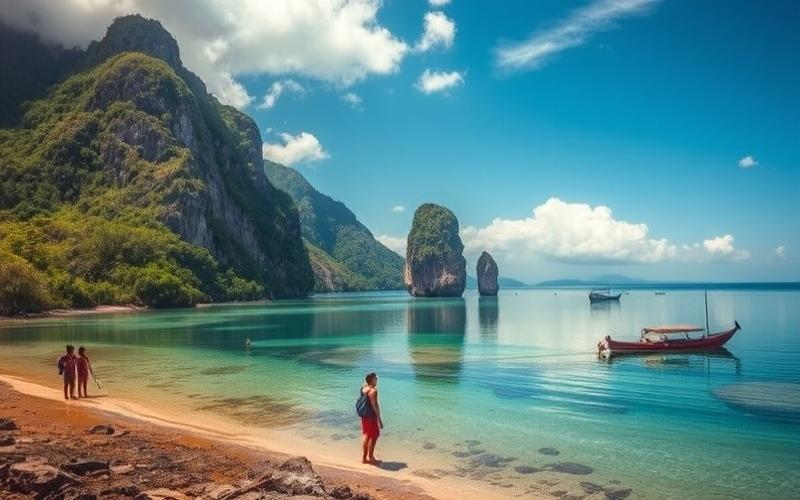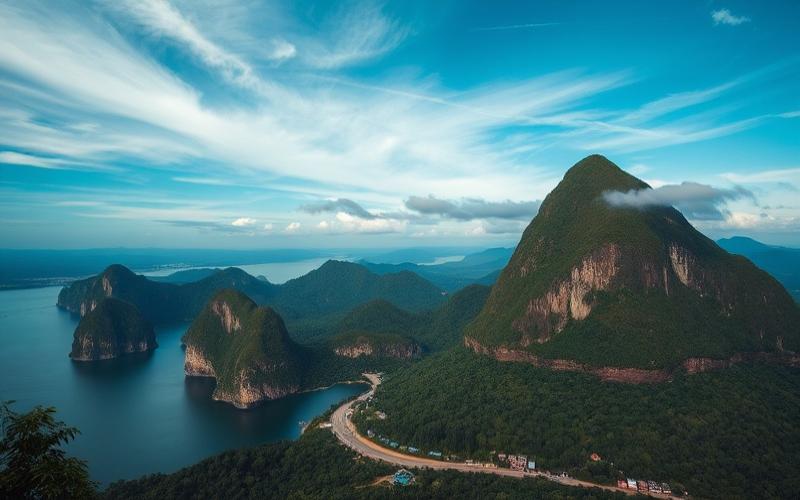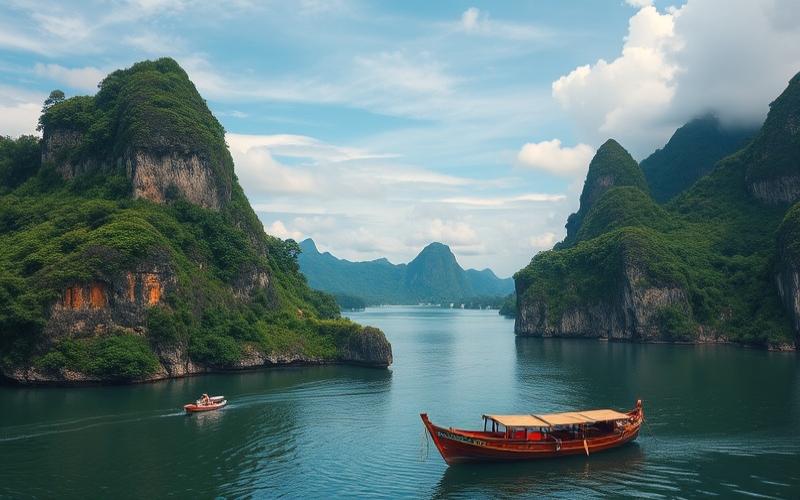
 Published on and written by Cyril Jarnias
Published on and written by Cyril Jarnias
Malaysia, a multifaceted country located at the heart of Southeast Asia, possesses a rich and complex history that has shaped its current identity. From early settlements to colonial influences, through independence and modern development, let’s explore together the captivating journey of this multicultural nation.
The Origins of a Millennial Land
The history of Malaysia dates back to time immemorial. Around 10,000 BCE, the first aboriginal peoples settled on this peninsula covered by a 130-million-year-old forest. This land, then uninhabited, would gradually become a strategic crossroads between mainland Asia and the Indonesian archipelago.
For centuries, the region was under the influence of various kingdoms and empires. Until the 14th century, the territories of the Malay Peninsula belonged to the Javanese kingdom of Majapahit. Many peoples settled there, creating trading posts that actively participated in regional exchanges.
Good to know:
Modern Malaysia has only existed since 1963. Its ancient history is marked by a succession of cultural and political influences that shaped its diversity.
The Emergence of Malacca: A Historical Turning Point
A major event would mark the history of the future Malaysia: in 1403, Prince Parameswara, fleeing Sumatra after an attack, took refuge on the west coast of the peninsula and founded the city of Malacca. Thanks to its strategic position between India and China, the port of Malacca quickly became the most important in the region.
It was during this period that Islam began to establish itself in the region. Following the expeditions of the Muslim Chinese admiral Zheng He, the rulers of Malacca converted to Islam. This conversion would have a lasting impact on Malaysian culture and society.
In 1511, the Portuguese captured Malacca, marking the beginning of the European presence in the region. This event would profoundly alter the balance of power and open a new era for the Malay Peninsula.
Good to know:
The Portuguese capture of Malacca had two major consequences: the disruption of the Southeast Asian merchant network and the Christianization of the western Indonesian archipelago.
The Era of Colonization: A Mosaic of Influences
The colonial period would profoundly mark Malaysia’s history, with a succession of European powers vying for control of the region:
1. The Portuguese (1511-1641): They were the first Europeans to establish a lasting presence in Malacca.
2. The Dutch (1641-1824): Allied with the Sultanate of Johor, they captured Malacca from the Portuguese in 1641.
3. The British (1786-1957): Their influence began with the cession of Penang in 1786 and gradually extended to the entire peninsula.
In 1826, the British created the Straits Settlements, grouping Malacca, Penang, and Singapore. They then extended their influence over the Malay states through a system of residents and protectorates.
The Treaty of London in 1824 marked a decisive turning point, establishing the division of the Malay world between the future Malaysia and Indonesia. It was during this period that the contours of modern Malaysia began to take shape.
Good to know:
The British colonial period deeply influenced Malaysia’s administrative, legal, and educational organization, some aspects of which still endure today.
World War II: A Japanese Interlude
From 1941 to 1945, Malaysia was occupied by Japanese forces. This period, although brief, would have significant consequences on the country’s political evolution.
The Japanese occupation revealed the weaknesses of British domination and fueled nationalist sentiment among the population. The mistreatment inflicted on the populations, particularly the Chinese community, brought some Malays closer to the Malayan Communist Party, which benefited from British support in the resistance.
After the Japanese defeat, the British attempted to regain control of the region, but the movement for independence was now underway.
Good to know:
The Japanese occupation, despite its brutality, paradoxically contributed to the emergence of Malaysian national sentiment and accelerated the independence process.
The Path to Independence: Birth of Modern Malaysia
After the war, the British created the Malayan Union in 1946, grouping the nine Malay states and the Straits Settlements. Faced with opposition from nationalists, this union was dissolved and replaced in 1948 by the Federation of Malaya.
On August 31, 1957, the Federation of Malaya gained its independence. Tunku Abdul Rahman became the country’s first Prime Minister. However, Malaysia’s history did not stop there.
On September 16, 1963, the Federation joined with the British colonies of Singapore, Sabah (former North Borneo), and Sarawak to form Malaysia. This was the birth of Malaysia as we know it today.
However, this union quickly encountered difficulties. In 1965, Singapore separated from Malaysia to become an independent republic, due to political and ethnic tensions.
Good to know:
The name “Malaysia” was chosen for the new federation in 1963, but in French, the name “Malaisie” has been retained to refer to the country.
Contemporary Malaysia: Challenges and Successes
Since its independence, Malaysia has undergone profound transformations:
– Economic Development: The country successfully diversified its economy, moving from dependence on raw materials to a dynamic manufacturing industry and an expanding service sector.
– Affirmative Action Policy: In the 1970s, the government implemented a policy favoring Malays and indigenous populations (Bumiputra) to reduce economic inequalities.
– Political Stability: Despite some tensions, notably the racial riots of 1969, Malaysia has managed to maintain relative political stability.
– Modernization: The country underwent rapid modernization, symbolized by iconic projects like the Petronas Towers in Kuala Lumpur.
Today, Malaysia faces new challenges: maintaining its economic growth, managing its ethnic and religious diversity, and finding its place on the international stage.
Good to know:
Malaysia is one of the few Southeast Asian countries to have experienced a relatively peaceful transition to independence and to have maintained a democratic system, albeit an imperfect one.
Conclusion: A Rich Heritage for the Future
The history of Malaysia is a fascinating blend of diverse influences: aboriginal, Asian, Islamic, and European. This cultural and historical richness is today one of the country’s major assets, both socially and economically.
For expatriates living in Malaysia, understanding this complex history allows for a better grasp of the subtleties of current Malaysian society. It explains the coexistence of ancient traditions and modernity, ethnic and religious diversity, as well as the challenges the country faces in its development.
Malaysia continues to write its history, seeking to reconcile its multicultural heritage with the demands of a globalized world. It is this dynamic that makes this country such an exciting destination for those who choose to settle there.
Disclaimer: The information provided on this website is for informational purposes only and does not constitute financial, legal, or professional advice. We encourage you to consult qualified experts before making any investment, real estate, or expatriation decisions. Although we strive to maintain up-to-date and accurate information, we do not guarantee the completeness, accuracy, or timeliness of the proposed content. As investment and expatriation involve risks, we disclaim any liability for potential losses or damages arising from the use of this site. Your use of this site confirms your acceptance of these terms and your understanding of the associated risks.

